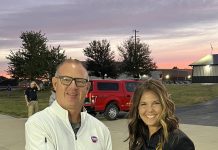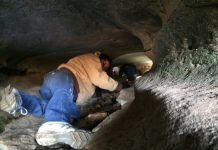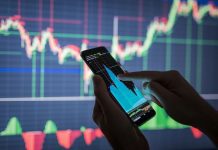Dear Editor,
How should American society go in 2022? Full steam ahead, American-style, text-and-spend, gorge and waddle, it’s all about me-and-my-friends, business as usual? That’s what I am hearing from the A-listers these days. Back to normal, baby!
News flash. Normal hasn’t been so rewarding in the past decade or two. I would agree we need the comfort part of normal, definitely yes. But the same-old degradation of the soul part of normal, definitely not. Working people are unhappy. Political people are perturbed. Teachers are leaving the classrooms and running for the hills. Business people are stressed. And financial kings are counting more and more money. This is the normal our leaders want us to get back to?
Our problem is the extreme individualism of society, and the extreme irresponsibility of individuals who are not thinking in any way about their neighbors when they do what they do. Liberty with irresponsibility has become the new blind faith of the masses.
Changing individual behavior will be the solution not only to the pandemic, but to a much better future. Who wants to purchase a ten-minute trip into space, if the earth you come back to isn’t worth a pillar of salt or a tinker’s dam?
America needs . . . America is ready for . . . tectonic change. The last great reformation in Western lifestyle happened 500 years ago. The large event that happened in the early 1500s is often called the Reformation. But religion was just a small part of the change that happened. At the same time there was an immense scientific revolution that shook the world out of Dark Ages voodoo alchemy into modern science. Also, there was an immense political revolution that buried monarchy six feet under and replaced it with democracy. Turns out little people lacking confidence are still capable of big things when they work at it.
My question to you is, are we good today to just stick with what rural farmers and struggling city merchants accomplished 500 years ago? Has religion been doing a great job bringing peace on earth? Have science and technology been bringing everyone along its own special pathway to equality? Has politics been bringing everyone together into one great big happy family?
Five hundred years is a long time. Time enough for lots of things to go very wrong. As a matter of fact, the axial progress that kicked off 500 years ago ground to a halt in the twentieth century, and has been losing great chunks of ground ever since World War II. Here’s why. The Reformation/Scientific Revolution/ Democracy movement has become totally stale, backslidden, self-defeating, bureaucratic, politicized, and commercialized. Everything that took humongous effort to produce then has been reduced today to a shiny little faux trinket and sold for the price of monthly rent money to make dishonest people rich.
Then, the Reformation happened because the whole society in Europe shuddered with revulsion at their current way of life. Then, every last individual human being who was dissatisfied participated in bringing something different. But not everyone was dissatisfied. Lots of folks wanted the king and the papists and the soothsayers and all of their followers to keep getting richer and keep controlling their lives. But lots of folks didn’t. Today, lots of people want the American kings and their nobility in Washington D.C., and their pocket scientists and chaplains, to keep it all happening. But many don’t.
Religion, in the past, was the umbrella that everyone gathered under in a storm, not because religion had all the answers, but because religion was humble and admitted it needed more answers. So, what did religious folk do? They turned to all of the possible resources of the cosmos, studying them and frankly petitioning them as if they could help in some way. In the olden days, the priests of religion were the ones who studied science and history, the two resources of greatest help to humankind.
Because the learning of priests was so self-evidently important to society, priests occupied the number two position in virtually all governments next to the magistrate. Today, the priests of religion are very much the opposite. They are opponents of science, totally ignorant of history, and often into partisan politics, rather than public service. Something, somebody, somewhere, needs to change.
The Reformation and its parallel movements made for a pretty big revolution, but we can learn from other axial reformations even deeper in the past. The great prophet-founders of western religion intensely disliked the worship lifestyle of their day. They saw that religion had become ritualized, sedentary, ignorant, and oppressive, so they integrated science and egalitarian politics into their movements. They saw that religion’s traditional calling had always been personal wellness, so they started with an emphasis on health science: physical, emotional, mental, and social. Prophets saw that people were suffering from a lack of community, of belonging to a group, of social life, so they built that for their people. Once people could physically stand up on their own two feet and start walking, there was a program waiting to guide them in their travels.
The approach of the great prophets of holistic change was to improve all of humanity, not to engross a few special bank accounts. For example, Jesus spent a large amount of time healing and helping anyone and everyone on the local level, like they were all deserving of more. Jesus also spent a large amount of time teaching in order to expand people’s minds. He was not into conducting sacraments every week to help folks warm up their car seats. Jesus spent his time challenging stale and hegemonic institutions of society and starting embryonic new ones, not playing video games and cruising hate websites. So, if we are to learn anything from history, we must learn that public health, education, and community action are the secret sauce of the onrushing 21st century revolution. If that doesn’t happen, we won’t happen.
The goal is to get back to the science that education brings, the social responsibility that ethical living brings, and the democracy that political participation brings. You in, little people?
Kimball Shinkoskey is a public health worker and historian.
















